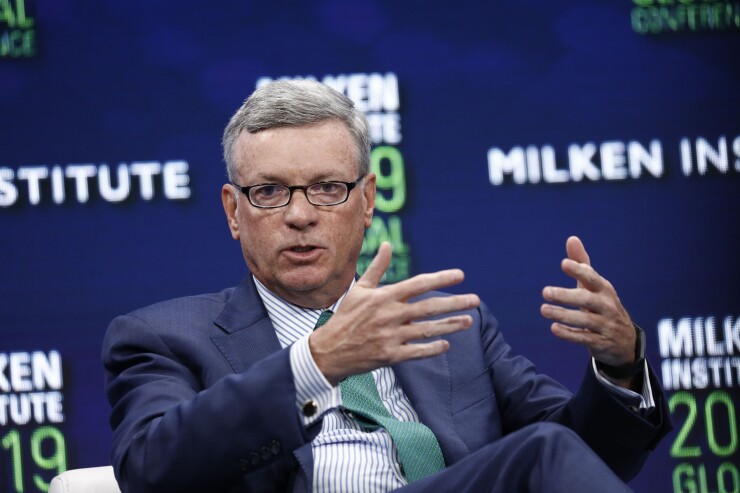In the battle to control consumer data, Visa has made a major score by agreeing to acquire Plaid, a technology company that it could have seen grow into a competitor.
Plaid provides a range of user experience services and works with partners such as Venmo, Betterment, and Coinbase, among more than 15,000 financial institution partners.
Plaid was recently valued at $2.65 billion, according to The Wall Street Journal. Visa and Mastercard both were part of a $350 million strategic investment in Plaid in September, a funding round that included Amex, Citi, Mary Meeker, Index Ventures, NEA and 16z.
Mastercard in 2019 battled Visa to acquire Earthport, which gave Visa the opportunity to expand its reach into cross-border transactions for e-commerce. Mastercard would up acquiring another company, Transfast, to accomplish the same expansion. The importance of open technology development to support fintech/bank partnerships suggests a new wave of acquisitions may follow Visa's Plaid deal.

Plaid uses application programming interfaces that connect financial institutions to developers to support consumer payments, lending, business finance, personal finance, banking and brokerage services. In addition to Venmo, Plaid also works with TransferWise, Paysafe, Current, Simple and Acorns, as well as challenger banks such as Chime.
Plaid's functionality is at the core of open banking, and other initiatives that tie banks to third-party fintechs such as payment apps. By gaining access to Plaid's client network, Visa will be able to more easily add digital financial services and gain revenue from its own payment rails, and support its issuer banks who will be making deals with fintechs.
"Plaid's APIs give Visa a new pathway to data-driven revenue streams," said Richard Crone, a payments consultant. “The popularity of embedded banking is seen in Google Cash, Libra and other forms of ‘headless banking’ where banking companies are underneath someone else’s brand or letterhead.”
Traditional financial institutions have been at odds with Plaid and other aggregators over data access. An upgrade at Capital One cut off the data aggregator, for example.
In a typical scenario, users enter their online credentials and Plaid authenticates their account. It also works with ACH processors such as Stripe and Dwolla. Plaid also recently entered a data aggregation deal with Wells Fargo.
“Perhaps with ownership by Visa, both banks and consumers will feel more comfortable about handling over financial account details,” said Sarah Grotta, director of debit and alternative products advisory service at Mercator. “Visa can also have some control over future development of new products, some that without Visa's ownership could have competed with its core card business.”





